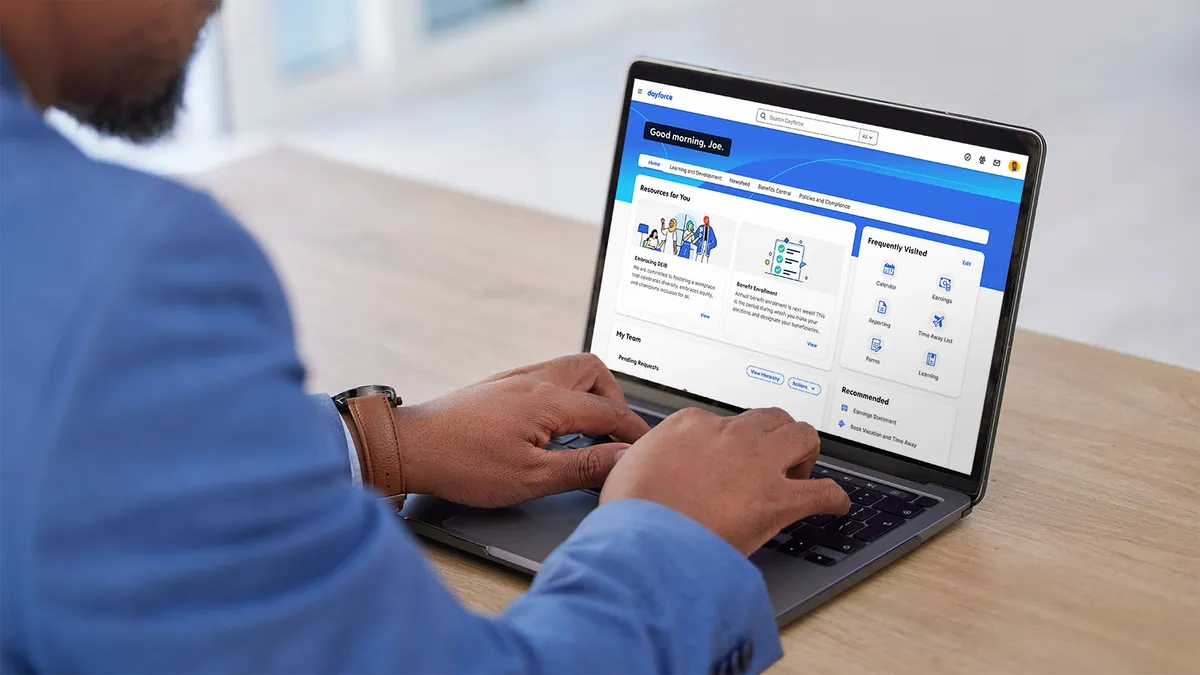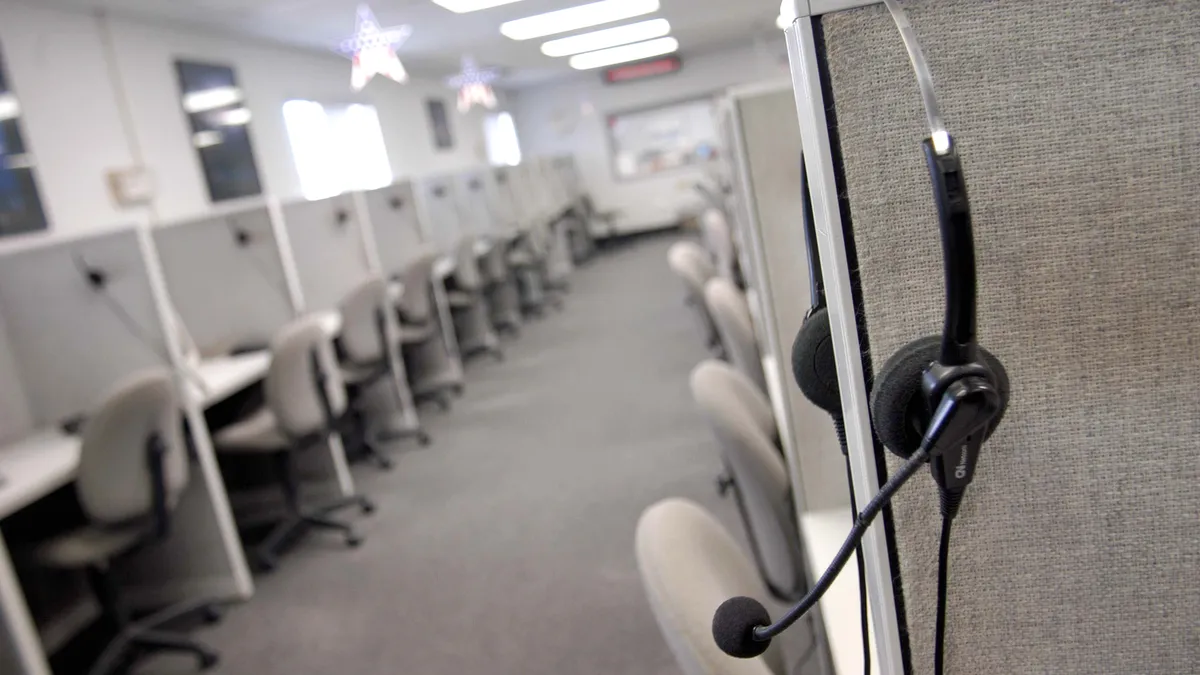HR Dive reporter Caroline Colvin takes up the mantle for the Talent Textbook series. Most recently, they asked HR experts about the difference between time to hire and time to fill.
Have you ever wondered about your workplace’s policy for something and didn’t know where to find it? Then you ask your manager, then your manager has to ask their manager and then it gets escalated to HR. Or maybe you are HR, and you’re tired of answering the same baseline questions over and over again.
This and similar situations has brought a new use case for AI at work to the forefront: enterprise search.
How artificial intelligence may save HR, workers time
Enterprise search refers to any kind of tech solution that helps workers find the information they need within their enterprise. Think workplace policies such as parental leave or meeting protocols, or the details of a worker’s benefits package, financial information and vacation time.
Now, add AI on top of that to make it all the more convenient.
When I attended the company’s annual conference in November 2024, Dayforce debuted its AI agent. Now, Google just debuted Agentspace following the launch of Gemini 2.0. Next up is Cisco Webex, which has beta tested the technology with a handful of customers and piloted the software on its own staff ahead of a February 2025 release to the public.
Manoj Muthavarapu, a director of product management at Cisco, not only worked on developing the Webex AI Agent capabilities for the past eight or nine years, but also has used the agent, called Kate during trials, in tangible ways.
“I have a team member who recently had a baby. My manager and I were on a call. They were wondering what we could do as a nice gesture, of sending a gift,” Muthavarapu told HR Dive.
“Now, normally for a question like that, I would have asked my manager. He would have maybe checked with a couple of people, and then I would have then spoken to HR or raised a support case, and then something would have eventually come back to me as an answer,” he said.
“We were like, ‘Let's just ask Kate.’ Within 30 seconds, we discovered that any new parents can go to the portal and just order a baby gift bag within X number of days of having a baby,” he said, adding that he was able to pass along the info to the new parent on his team.
Along with providing answers to questions, some AI agents, such as that from Dayforce, even have the workplace policy PDF attached to the answers that the chatbot gives. Having seen a variety of software in this space, I can see how scenarios such as Muthavarapu’s could become the norm within organizations.
HR has used this technology for a while
From machine learning to generative AI, artificial intelligence in HR is beyond a hot topic. Where and how can AI agents be used in hiring? Are there compliance issues if you do so? Do you create an ethics policy for workplace generative AI use? How can HR use AI to cut down on dreaded menial tasks?
Microsoft positioned its 365 suite’s Copilot in 2023 as a means to “remove the drudgery of work.” Slack also debuted an AI component last year and continued to add and improve app integrations this year.
Earlier this year, one tech CPO told HR Dive that HR is “just scratching the surface” of leveraging AI for work — and surely the deluge of new software, new use cases and new questions will keep on coming.
But a gap seems to exist between business leaders’ understanding and adoption of AI, and confidence in their skills. For example, more than half of vice presidents and directors from the U.S. and U.K. surveyed said that they have never attended an AI-related training.
In the same December 2024 report, less than half said they feel confident in how to use AI without compromising company data and 27% said they are not very or not at all confident in their abilities.
Nathan Mondragon, chief innovation officer at HireVue, told HR Dive that many people in the space are probably using AI and may not even know it.
“A lot of HR professionals are using it to facilitate their day-to-day jobs, [such as] streamlining and clarifying their writing,” Mondragon said. He also noted that some HR professionals are using AI to create work assessments and screening tools.
“It seems like the sky's the limit at this point in time,” he added.
While AI use at work is not without challenges, it’s clearly here to stay in 2025 — no matter where a company or employee stands on AI. If this technology is to become ubiquitous, HR has an opportunity to make good use of it.
Clarification: This story was updated with details about the Webex AI Agent trial name.





















